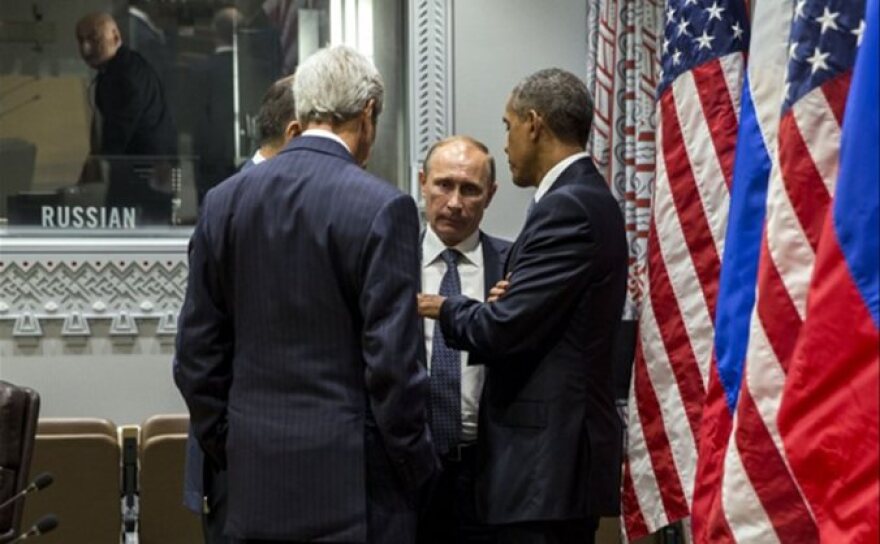This week Russia launched its first air strikes in Syria after the country’s parliament approved the use of military force to combat Islamic State militants. The move comes just days after Russian President Vladimir Putin and President Obama met at the UN General Assembly.
Rebecca Cruise, the assistant dean of the University of Oklahoma’s College of International Studies and a comparative politics expert, told KGOU’s World Views Putin and Obama came out of their meeting with different ideas on how to respond to the Syrian civil war, just like they did months ago regarding the unrest in Ukraine.
“It does really seem like Putin is really trying to show the world that they are a partner. That they continue to be a great power, or were a great power during the Cold War,” Cruise said. “Here we are some 20, 25 years later and that they'll be on equal terms, equal footing with the United States.”
But Cruise says the Russian public isn’t necessarily on board with getting more involved. A recent poll by the Levada Center in Moscow shows 69 percent of the population is against direct military action in Syria.
Suzette Grillot, the Dean of OU’s College of International Studies, says the difference between Syria and Ukraine is that Russia actually has strategic interests in eastern Europe. Eastern Ukraine is filled with Russians, and the Crimean peninsula provides an important warm water port with access to the Mediterranean.
She also suggested a lack of a meaningful western response to the situation in Ukraine gave Russia a sense of empowerment.
“I think the big question is, is Russia really interested in trying to solve a problem in Syria?” Grillot asked. “Or is it just posturing and demonstrating that they're still a power to be reckoned with?”
Cruise says Russia does have strategic interests in Syria, and is trying to show loyalty to Assad, having backed him since the civil war began in 2011. But she says the difference comes down to Russia wanting a neighbor (or a buffer) in Ukraine to protect itself in eastern Europe. Russia may also try to reengage in Europe, and maybe get involved in the refugee and migrant crisis. Even though the violence in Ukraine hasn’t ended, the situation does appear to be drawing to a close.
“Perhaps the peace settlement that was signed last year - some discussion of that actually coming to fruition,” Cruise said. “So as that's winding down, we are seeing them gearing up in Syria, and perhaps they'll be looking elsewhere. Europe is probably where they're going to be looking, but it's hard to say right now.”
KGOU and World Views rely on voluntary contributions from readers and listeners to further its mission of public service with internationally focused reporting for Oklahoma and beyond. To contribute to our efforts, make your donation online, or contact our Membership department.




